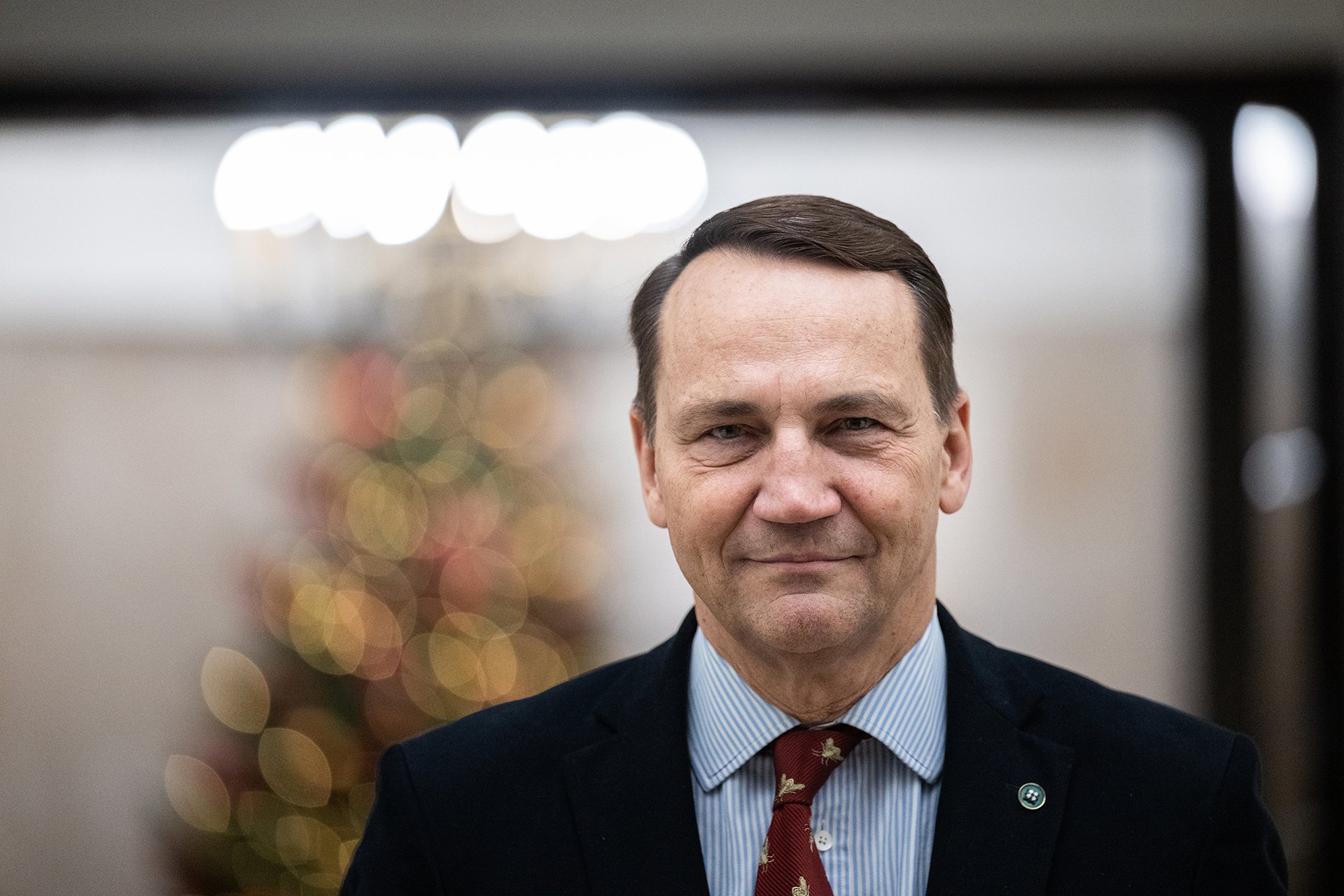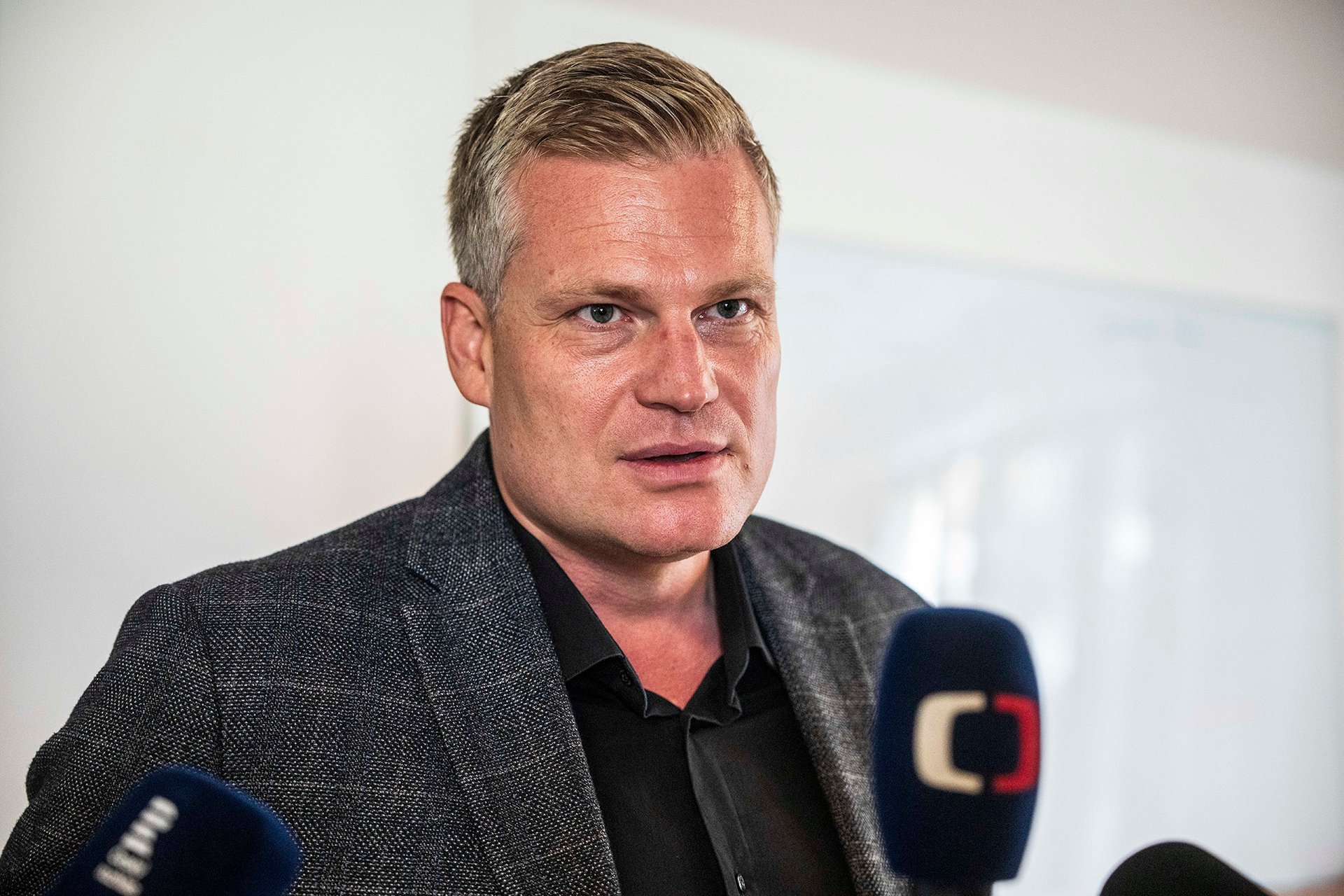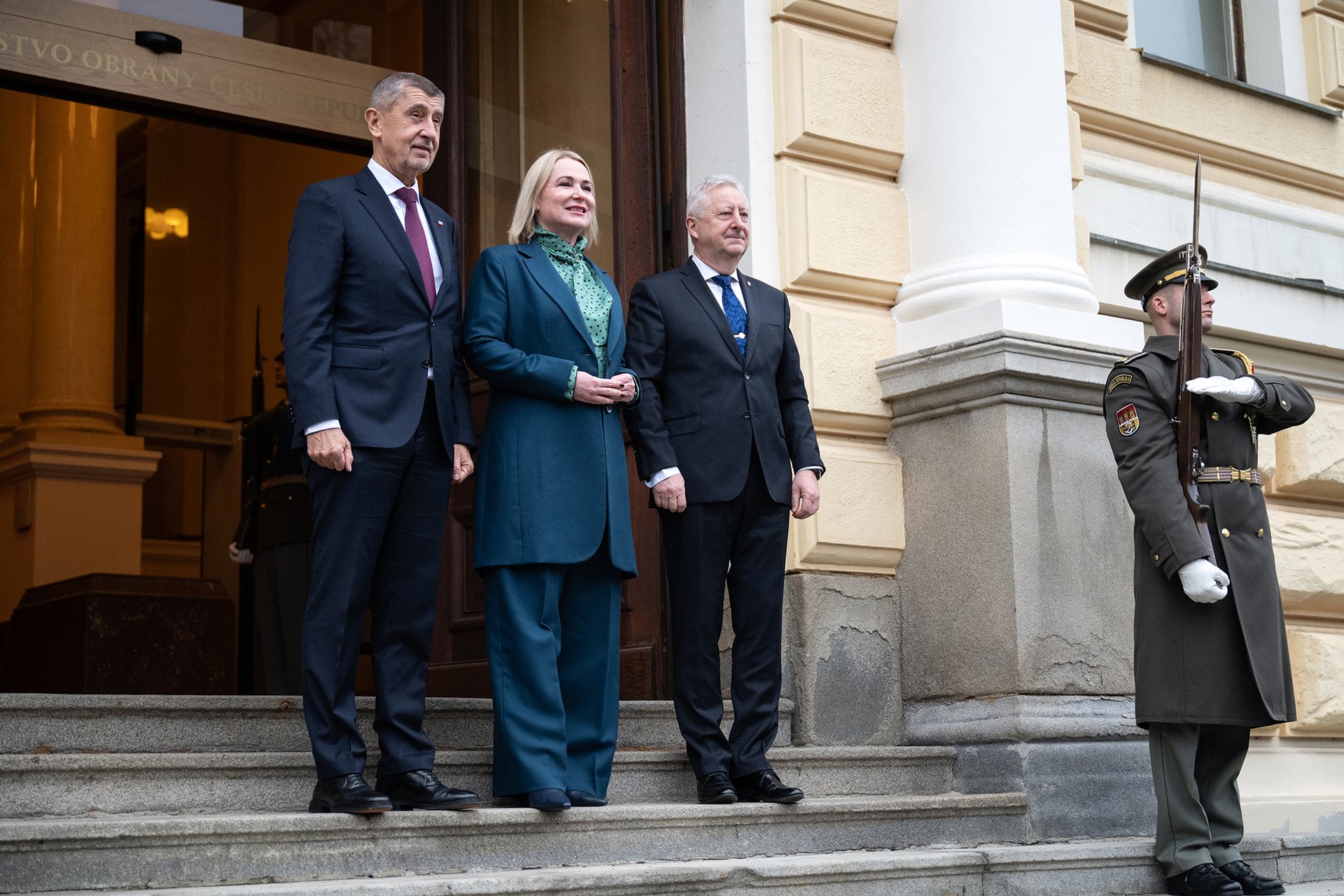To the Roots of the Cosmic Tree
Prof. Andrei Linde (59) is one of the originators of inflationary theory, one of the most important theories of current cosmology.

Prof.
(59) is one of the originators of inflationary theory, one of the most important theories of current cosmology. He was born in Moscow and after graduating from the Moscow State University he worked at the Lebedev Physics Institute, where he began probing the connections between particle physics and cosmology. He became a professor of physics at Stanford University in 1990. In 1980s he founded the theory of chaotic inflation, according to which new Universes can be formed continually and we live in one them. Prof. Linde is married and has two sons.


Before your theory of chaotic or eternal inflation was born, the picture of the Universe was somewhat elegant, acceptable for those who believe in God: In the beginning there was the Big Bang, and with the Big Bang the possibility of Creation. But according to your theory, the Universe can exist eternally, goes through an eternal chain of new creations and does not need to have any beginning in time. Doesn’t it seem depressing to some people?
It is more complicated, so let’s start with the Big Bang. The Big Bang theory in its original form could not explain a lot of things: Why the Universe is so big, what was before the Big Bang, where matter came from, how galaxies formed, why two parallel lines do not intercept, in other words, why the Universe is flat. Then inflation solved most of these problems except for the very first one: what is the Big Bang. And now about my theory: if it is right, there still could have been a first Big Bang, which was like a root of a cosmic tree; the tree which produces bubbles of the new Universes. These bubbles produce new bubbles and the process goes on eternally. Each of the bubbles will die eventually, but it will not be death of the full tree. I think that it is not depressing at all.
One of the first realistic versions of the inflationary theory was created in Russia in 1979. What was the climate in Russian science at that time?
There are two different things. First, we had complete intellectual freedom, we worked in academic institutions and could do whatever we wanted. I worked at the Lebedev Physics Institute. Just a theoretical division of it had about 70 people, which was quite a lot. Half of them were professors. It was a very friendly institute to work in. But if you tried to share or discuss your discoveries with western colleagues, then it was going to get more complicated. You needed to get a permission to send a letter abroad and when you got it, the letter traveled to the west for about a month and a half, beating all records of long flights.
I assume that it was impossible to go to a conference in the United States, for example.
It was extremely difficult. But despite we could not travel freely, Russian science was pretty strong. In my branch of science (physics, nuclear physics, elementary particle physics, cosmology) we were second only to the United States. You can demonstrate it by what happened with the inflationary theory: it was invented in the United States and in Russia in parallel. Other countries were unable to compete. The only other country which made a significant contribution was England where was Stephen Hawking. But then, during the last, well, 15–20 years, things changed in Russian science in a way which is painful, but completely understandable. But I still keep some hope that things may change to better in the future, mainly because what was good about the Russian culture is respect to intelligent people. If you are born in a society that respects intellectual developments, then it is important for you to read good books. It is important for you to have good education, to learn mathematics and physics, and you respect smart people, you listen good music, you watch good intellectual movies. If this part of the culture survives, then maybe younger generation will be still educated by their parents who respect this culture and then Russian science gets better again.
Was there a pressure on you to abandon theoretical physics and move to the research on nuclear weapons?
No, I came to physics at the time when this was not so urgent any more. We had much more nuclear weapons than one would like to. Research on nuclear weapons is not something that I wanted to do.
To change a subject, I may tell why I stopped watching hockey. Perhaps this could be interesting for your readers in Czechoslovakia.
Why?
When I was a kid, I watched hockey and I always wished my national team to win. And then, when Russians came with tanks to Czechoslovakia, there was a game on TV where Russians were playing with Czechs. I was watching this game and this was the first time in my life when I wanted my team to loose. And after that I never watched hockey.
According to your theory, the new cosmic “bubbles” will be formed eternally. Does it mean that a new Universe could be born even in our Universe, right now?
Yes, it is possible.
And if it happens, could we see it somehow?
There are two different possibilities. They are sometimes described in the same way, but they are really different: one possibility is that you have an expanding universe in some particular vacuum state. This vacuum state may be unstable. Then it decays to a more stable state, to a lower minimum. Like water produces bubbles when it evaporates, the Universe produces bubbles of a new, better vacuum. Each bubble will be like a new Universe. When walls of the bubble move towards you, it will hit you and kill you. That is not good news for you, but maybe that is good news for those who will be living in the new Universe. That is one option.
And the other one?
Suppose that in this room you have a quantum fluctuation which produces a big universe. Then a funny thing happens with it. It does not expand on you and does not kill you. Instead of that, it expands from its own resources. I can give you an analogy: let’s say you are picking mushrooms in the forest. Suppose you are very-very tiny, like a small dwarf. You come to a mushroom and you see a big leg, but what you do not see is the mushrooming hat. Even if you imagine a very thin leg, you can still have a very big mushroom upstairs. So what may happen with the Universe is just like mushrooming; the place where it is created is a small tiny place, but it has a big hat inside. You do not see it, because for you to go there, you must first climb this mushroom leg. And this mushroom leg tends to disappear, to shrink. So what happens is that the universe is produced as a balloon attached to our world by a thin mushroom leg, then this mushroom leg shrinks and disappears, and you have this Universe floating somewhere where you do not see it. It is not something simple or well accepted, but when you think about creation of the Universe from the space surrounding us, this is one of the options.
Is the mushrooming hat hidden in other dimensions?
No, it just exists separately, in another four-dimensional space-time, or it remains a part of our space, but moves very far from you. What happens is that our Universe may be very curved. I can give you another analogy: Suppose you have a square and you want to move from one corner of the square to another corner. If this is a normal square, no gravity, you just move straight and everything is fine, every step you make has the length 3/4 of a meter. Now suppose you have gravity there: curved space means the first step will be three quarters of a meter, the second step will be half of the meter, the third one quarter of a meter. You make the same steps and you do not understand what is going on. But your steps, as compared to the square, become smaller and smaller, and you yourself become smaller and smaller. We are used to make ourselves the measure of all things. But in fact, there are some coordinates in which you are getting smaller and smaller. And it takes you infinitely long time to travel from one place of this square to another place of this square. So if a new Universe is born within the square, it expands so fast that it curves space and that if you want to go to this place, you can make the same kind of steps but from the God’s view, the steps become smaller and smaller. So you just cannot get to this place, you cannot feel this place.
Do you believe in God?
It is a complicated question, because different people understand by the word “God” different things. When you try to define the question more precisely, you should be very accurate what actually you are interested in. If you are thinking about somebody living on some other planet and taking care of the Universe, that would be probably very naive. But if you are thinking about something like universal consciousness, something like the universal mind of everything, then who knows.
Science does not really care much about consciousness. It mostly cares of matter, particles, such as protons and electrons. If I have pain, you can see that my face changes, that electrons are moving in a specific way in my brain. And you know that I have pain. But you do not feel my pain. You just see things which are associated with me being in pain. Psychology, neurophysiology usually study this. These disciplines associate the processes in my body with pain, happiness, etc. When doctors observe my brain with neuroimaging methods, they can more or less tell you what I think of at different times. But they do not feel my pain, they do not feel my happiness. Psychologists are mostly interested in the final result: There a patient who is unhappy and I want to make him happy. What is his happiness I do not know, but I know how to make some physiological changes to make him smile.
So instead of talking about God, I am talking about something which is very close, one step away from the standard picture of the world consisting only of matter. About something which science have not really seriously attempted to study so far: I wonder where we all came from and whether we are going to die or not. It is not directly related to God, it is related to what is consciousness. The question is if me being alive is confined to my body or if there is something else. Usually we all think that it is confined to my body. I am not so sure about that, I just do not know. I think unfortunately we did not start thinking seriously about that yet.
Do you see any hint in physics that consciousness can exist even if the body dies?
We do not see anything like that directly. But what we have now is an analogy: We previously thought that the moment of creation of the Universe was the moment of its creation from nothing. But now we study the theory of chaotic inflation and it tells us that there may be an infinite chain of creation. Remember this tree of growing Universes; most probably we are just sitting on a branch of this tree. So when we look back in time towards the Big Bang, we probably are not looking back to the “first moment of Creation“, but only to one of the many Big Bangs. We did not have this picture 25 years ago, we did not think about it this way. But now we started to speculate about the possibility that there was something before our Big Bang and we were produced from something that had been there before.
What I am talking about is no more than an analogy. But nevertheless, we can start to ask: could it be that when we see a newborn child, we are making a similar mistake? Could it be that the child becomes alive neither at the moment when it is born nor nine months earlier. The child may have been alive in a certain way a long time ago. Maybe the child is not born for the first time. Twenty five years ago we considered the Big Bang to be the origin of everything, now we know this picture may be wrong. It may be the same story with the child: when our knowledge gets deeper, we will interpret differently what it means to be born.
Perhaps it is too early for us to think about such questions, and later we will learn that we formulated them in a wrong and very naïve way. It is quite possible that these questions are silly. But if we never ask them, we will never know, and we may never learn something very important.
I like cosmology because it pushes us very close to the ultimate questions. It does not give you the ultimate answers, but it teaches you to think about these difficult questions, it teaches you not to be afraid to ask them.
Do you think that the so-called final theory will ever be discovered?
The question is what we mean by “final”. To test the string theory, which is a good candidate for the role of a final theory, we would need energies billions times higher than the energies which can be achieved at any most powerful accelerator. So I do not think that we will ever be able to test it completely. But we many come close and get a feeling that maybe we are on the right track. How close can we come, I do not know.
When the inflationary theory was invented, I believed that the theory was right, even before we had many new observational data supporting it, because it just solved so many problems simultaneously. And I never expected that it will be experimentally confirmed. But then we got the data from the COBE and WMAP satellites, which confirm the inflationary theory. Scientists who work on the COBE satellite were awarded the Nobel Prize for physics in 2006. They and other scientists are not only checking the idea of inflation, they are checking every particular model of it, ruling out some, keeping others. I do not know whether something like that happens with the string theory. I can be skeptical again, but I can make a mistake again. But it is most certain that we will never see the full picture.
Does anybody expect that such testing of the final theory may happen during the next 20 years?
It may happen even within the next few years. String theory is based on the idea of supersymmetry. which claims that every normal particle should have a supersymmetric partner, something like a twin. For example any proton consists of quarks. In these theories, each of the quarks has its brother called squark. The problem is that these supersymmetric particles or superpartners have not been found yet. Some people say that we did not find them because they are very heavy, 100–1000 times heavier than the mass of the proton. If this is the case, then these particles could be found on LHC, the big accelerator which will soon start operating at CERN, the European particle physics laboratory near Geneva. It is very important whether LHC finds these particles or not: If they are found, there will be a wave of enthusiasm and people will get money for building a bigger accelerator. But if LHC does not find these particles, the life of those who develop string theory will not be so nice. The string theories will become a branch of mathematics, a very elegant branch, which has already produced lots of interesting mathematical developments. Ed Witten, one of the leaders of string theory, was awarded the Fields medal for some of these results - a medal for development of mathematics, which is similar to the Nobel prize.
According to your theory, there could be other Universes with different laws of physics. What does it tell us about Mother Nature, what are the philosophical consequences of such a concept?
The idea that the Universe as a whole is eternal, that it probably consists of different parts with different laws of physics, is one of the strangest developments in our understanding of Nature right now. The Universe is more democratic than we expected before. But strange as it may seem, this is the only way how one could explain a very precise tuning of some features of our world. Why is the mass of electron so tiny and why, if it changes only a little bit, life could not exist any more? Why is the energy of vacuum not zero and why it differs from zero only very slightly? If it were much greater than what it is now, life would disappear. I can come with many more examples like that. If there was only one Universe, then such an incredible fine tuning would not make sense, you would really need God to create and tune the Universe for our benefit. But if we have a Universe consisting of different parts, then the Universe creates itself and all its possible versions. This explains that we live only in the part where life is possible, so this picture removes the necessity of somebody creating one universe after another and fine-tuning everything for our benefit. So from my perspective, there is a strong evidence in favor of this theory which tells us that the Universe may exist in different forms.
But then, why not all cosmologists agree with this principle?
Because people do not want to give up the idea that eventually physics will predict everything. They want physics to explain everything about their life. For example when I was a boy in Russia, I wanted to understand why I am so lucky to be born in the best country in the world. Well, so it seems that this kind of attitude is very common among physicists. They want to explain why they live in the best possible world. They want to explain every property of this world as something that is necessary, something that can be derived from some fundamental principles. Communism was supposed to be necessary, something that is certainly supposed to win. And many other ideologies believe that they are going to win. We see it with the war in Iraq right now; some politicians have religious visions about what is right and what is wrong and want to enforce these visions with all tools available.
What I like about this scenario of many Universes is that it offers more democratic view of the Nature. If someone in physics believes in a theory different from your own, you would not necessarily think that he is your enemy. But the idea that the general laws must be set in a certain way is something that has deep roots among physicists. I think that it is somewhat related to the monotheistic tradition by which we all are influenced. There is either the Christian God or there is the Muslim God. But each tradition insists that there is only one true God. Physics should not necessarily follow religious traditions, but the religious traditions somehow determine the way people approach physics. The tendency to simplify the laws of nature and to reduce them to a single law is very healthy. However, even a single law, a single theory, may look different in different parts of the universe. Water can be liquid, or solid, or it can be a vapor. People who live near the South Pole should not insist that water must be solid everywhere.
You mentioned the war in Iraq. But Russia also waged bad wars in Chechnya. What do you think about that?
I do not have enough information about that. When I come to Russia, I see how angry people are with Chechens. In every ethnic conflict you always find two sides who hate each other and you start asking questions which of them is right.
If you look at what happened in Iraq, you find out that Americans removed the tyrant who kept this country under control. Was it a good idea to do so? After that, chaos broke out and people started to fight each other. So who is wrong? I do not know, I do not want to say that Sunni are wrong, or Shiites are wrong. As long as you have some kind of order, you can keep everything in balance. Sometimes this order is cruel, and democracy really helps, but democracy took two hundred years in the United States to get established, and on the way of establishing itself, such things happened as the extermination of Indians. One can always expect trouble when one country tries to export its visions to another country.
When you came to the US, you were an established scientist already. But anyway, was it difficult for you to start your career again here at Stanford?
It was both easy and difficult. It was easy because people at Stanford are very friendly, helpful, smart. I like this university a lot. Nevertheless, because I came from a different culture, it was complicated as well. When you find yourself in such a different world, with all help of everybody you still have an adaptation shock in the beginning. On top of that, I have my mother in Moscow who is 87 now. It is not easy for me. I am trying to fly there whenever I can. And teaching and working here is on top of that. So it is not easy even under ideal circumstances.
I know Russian scientists who came to West and flourish there, work very successfully. But I know others who came and stopped producing anything. Or switched completely from physics to something else. I know many Russian students coming to Stanford or other places who see that life is comfortable here and do not want to return back. They do not have good visa to stay, so they join any kind of computer companies and switch from physics to business. Just to stay there. So it all depends on the person, some people remain physicists and some do not.
As a professor at Stanford, do you have to apply for grants to do your research?
I am supported from two sources. First is my teaching, I got salary for nine months of teaching. Then I apply to the National Science Foundation or Department of Energy to get money for my summer research. You can get this extra support, but it is not granted, while the salary for teaching is guaranteed as long as you teach. But for me research is a priority. Stanford University is also interested in our research, but the university mostly gets its money from parents of the students, therefore the main source of money is from our teaching.
Can you compare science in the US and in Russia nowadays? In terms of financing, support, reputation you get…
I cannot compare honestly with Russia today, because I am visiting Russia once or twice a year; you do not get a complete picture if you do not stay there for a longer time. I can compare what was in Russia before I left and what is now here. In Russia I had a complete freedom of intellectual work. At Stanford I also have a complete freedom, but I must teach. Substantial part of my time is devoted to teaching and I do not have as much time for research as I would like to. On the other hand I know that some of the scientists who do not teach stop learning new things and continue producing old stuff over and over again.
Let me tell you what I have seen during last years in Russia, but things maybe start changing a little bit. Previously, during communism, Russia spent disproportionally large amount of money (compared to its GDP) for science and arts. These things were supported by government. As for art, of course, the government sponsored only particular type of art, but nevertheless, they gave them money. As for science, they supported all different branches of science, physics in particular. Without physics they would not have nuclear weapons. Now that Soviet Union does not exist, now that the cold war is over, it is not so necessary to support physics. So the scientists must have several different jobs, which means that they have much less time for doing what they are supposed to do. Some of the best people emigrated. I hope that the scientific culture will recover, but it usually takes time.
What exactly is scientific culture?
How do I get information about new developments in my field today? Every day at 5 pm I run to my computer, because new papers are released at that time. I can download them from the web. This is how they publish scientific papers now. I look at four different computer bulletin boards, for example “high energy physics” or “astrophysics”. There are maybe sixty or seventy new papers published at these four different boards every day. It makes about 20 thousand new papers a year. A very small percentage of these 20 thousand papers are really important.
Now imagine you are a student who looks at this; what would you do? You cannot read all of them, so you have to go to your advisor and ask what to choose. If the student has a good advisor, he has a chance to do good physics. If the advisor is not so good, the students have a risk of doing something entirely irrelevant. If you are not surrounded by people whom you can ask questions, it may happen that you will waste your time doing irrelevant things, and you will not even know it. There should be a culture of people who know how to sort things out. If this culture is demolished, if it disappears, then it takes a long time for it to recover.
About the inflationary theory
According to the inflationary theory, the Universe was “blown out” rapidly immediately after its creation. We call this rapid expansion “inflation”. During a very short period of time (10–35 second) the Universe enlarged in unbelieveable way; before the inflation it could be much smaller than one billionth of a millimetre, while after the inflation ended, the Universe was bigger than the whole part we can observe today.
In 1986 A. Linde formulated the theory of chaotic eternal inflation. According to this theory, inflation can occur wherever the value of a certain type of scalar field, which fills the cosmos, exceeds certain threshold. Such a domain starts to expand rapidly and can give birth to a new part of an inflationary Universe. It means that inflation becomes an eternal, repeated process through which new parts of the Universe are created. The Universe as a whole becomes immortal.
Pokud jste v článku našli chybu, napište nám prosím na [email protected].










